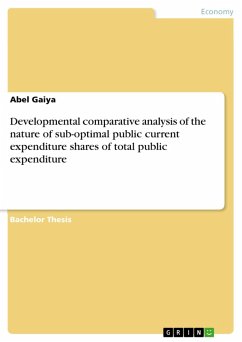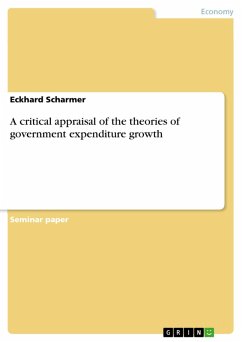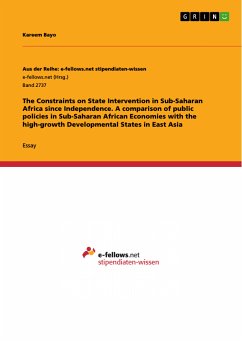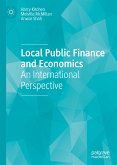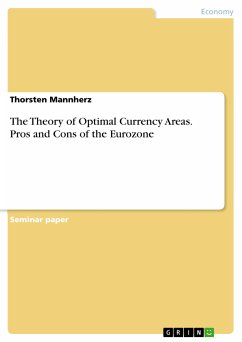Bachelor Thesis from the year 2016 in the subject Economics - Other, grade: 80%, Rhodes University, course: Bachelor of Commerce (Honours) in Economics, language: English, abstract: An investigation into the patterns of general government current expenditure shares of total expenditure, as well as patterns of optimality and sub-optimality, between developed and developed countries, has been undertaken. Discussion over this metric has largely been limited to publicized comments, the informal blogosphere and news commentary; this paper presents a contribution towards the subject. Using econometric methods and statistical analysis, a wide range of results are uncovered regarding the cross-developmental patterns of current shares, their optimum values and sub-optimality. The first is that developed countries generally have higher current shares as a proportion of total government expenditure, than developing countries; but the variation of these shares across developing countries is significantly greater, although it is trending downwards over time. Secondly, although prima facie evidence shows that the optimum current shares for developed countries are greater than for developing countries, statistical robustness is elusive - most likely due to statistical and data limitations within the research. Thirdly, there is little evidence that the general deviation of current shares from optimum - that is, sub-optimum behaviour - significantly differs between developed and developing countries. Lastly, observed sub-optimum behaviour of current shares does not seem to be driven by government ineffectiveness.
Dieser Download kann aus rechtlichen Gründen nur mit Rechnungsadresse in A, B, BG, CY, CZ, D, DK, EW, E, FIN, F, GR, HR, H, IRL, I, LT, L, LR, M, NL, PL, P, R, S, SLO, SK ausgeliefert werden.

